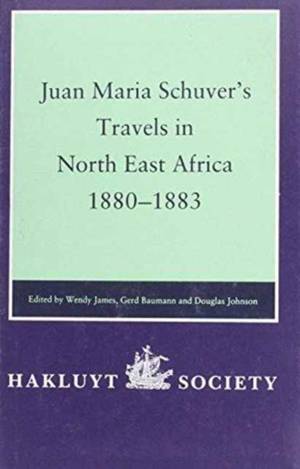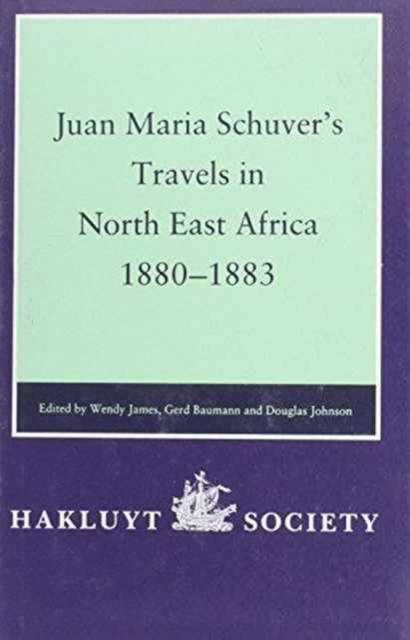
- Retrait gratuit dans votre magasin Club
- 7.000.000 titres dans notre catalogue
- Payer en toute sécurité
- Toujours un magasin près de chez vous
- Retrait gratuit dans votre magasin Club
- 7.000.0000 titres dans notre catalogue
- Payer en toute sécurité
- Toujours un magasin près de chez vous
167,95 €
+ 335 points
Description
Juan Maria Schuver was born to a wealthy Amsterdam business family in the mid-19th century. Established young as a travel writer and reporter, he decided to embark on scientific exploration. Leaving Cairo at the turn of 1880-1881 he proceeded up the Blue Nile, intending to find a new route through to the East African coast. This ambition was frustrated, mainly because of local political turbulence following the Mahdist challenge to the Sudanese government and internal stirrings in Abyssinia. As a result, Schuver remained for the better part of two years in the hills of the upper Blue Nile and the eastern watershed of the White Nile basin. He wrote lively accounts of these regions and his encounters with the local people. He had to return to Khartoum at the end of 1882, but took a steamer up the White Nile in the middle of 1883. Somewhat impatiently, he ignored advice not to travel further southwards overland, and was murdered, a few days into western Dinka country. Schuver had planned books in both English and French on his explorations in the country 'Between the Two Niles'. The only version which saw publication was an edited German translation, prepared by Petermann's Mitteilungen as a special issue in 1883. A combination of chance, the present editors' interest in the region, and the collaboration of the Schuver family led to the re-discovery of the original manuscripts. He present volume offers the full English accounts supplemented by passages from the author's French revisions, and also draws on other drafts and letters, to give for the first time a full picture of Schuver's African travels.
Spécifications
Parties prenantes
- Auteur(s) :
- Editeur:
Contenu
- Nombre de pages :
- 472
- Langue:
- Anglais
- Collection :
Caractéristiques
- EAN:
- 9780904180459
- Date de parution :
- 31-01-99
- Format:
- Livre relié
- Format numérique:
- Genaaid
- Dimensions :
- 138 mm x 216 mm
- Poids :
- 4529 g

Les avis
Nous publions uniquement les avis qui respectent les conditions requises. Consultez nos conditions pour les avis.






